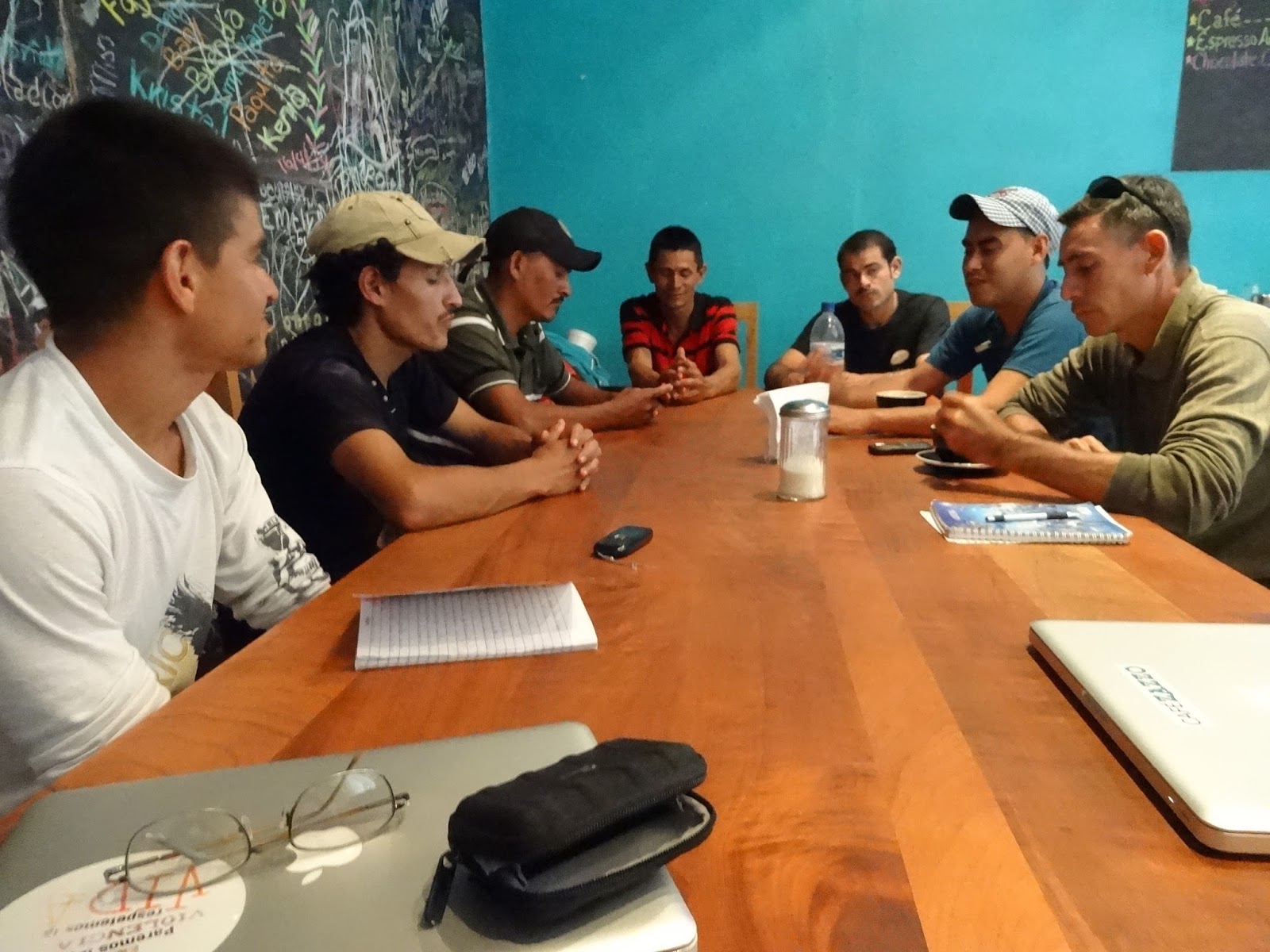I mentioned in a previous post - here - that I am accompanying a cooperative of 15 coffee farmers from El Zapote de
Santa Rosa in their efforts to produce high quality coffee for direct exporting
to the US.
As part of that effort, I arranged to have four of them go
with me to La Unión, Lempira, to see and hear what they are doing there. You
can read more about the work of La Union Microfinanza [UMF] on their website
here.
We were there for about 48 hours – well spent, I believe.
We spoke with the team of Hondurans and the US director,
Patrick Hughes, when we got there. Our coffee producers had lots of questions.
It was great to see such enthusiasm.
The first afternoon we went out to the beneficio, the coffee
processing facility that UMF has, partly as a training and experimental center
– since it is only used by 4 producers.
 |
| Patrick (left) explaining the beneficio |
 |
| Betio (left) explaining the fermentation tanks |
 |
| Fermentation tanks |
Patrick and Betio explained their facility and emphasized
the importance of good processing, clean facilities, and much more.
 |
| a solar dryer |
After we examined their solar dryers, they showed us their
biogestor experiment to process and use the coffee pulp and the residual water
(called aguas mieles) without contaminating
the environment.
 |
| Biogestor |
If you want high quality coffee, you pick the mature coffee
berries.
Often in harvesting coffee, the harvesters are paid by
quantity and therefore they pick green, ripe, over-ripe, and almost ripe
berries. These all get processed together and are sold for Honduras
consumption. But mixing these together won’t give you good coffee for export.
The second day we visited two producers in their fincas (coffee fields) and
talked about a lot of different themes related to quality coffee production. I
was very pleased to hear the guys I brought with me asking good questions as
well as sharing their experiences.
 |
| with Bernardo (left) |
 |
| A homemade trap for coffee berry borer beetles |
 |
| The "road" back from one of the fincas |
The final day the guys from El Zapote sat at a coffee shop
talking about the process of exporting coffee with the staff of Unión Microfinanza.
Lots of information was shared – and many questions were
raised. It was a good step to helping advance what could become an important
way for these and other small coffee farmers to work together for a better life
for their families and their communities.





No comments:
Post a Comment